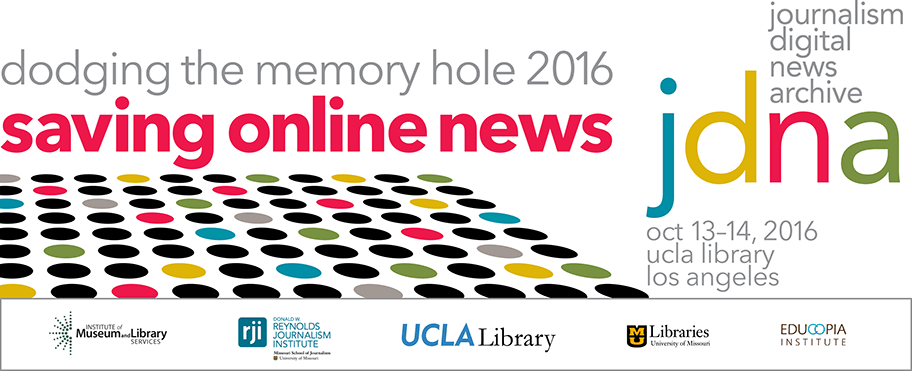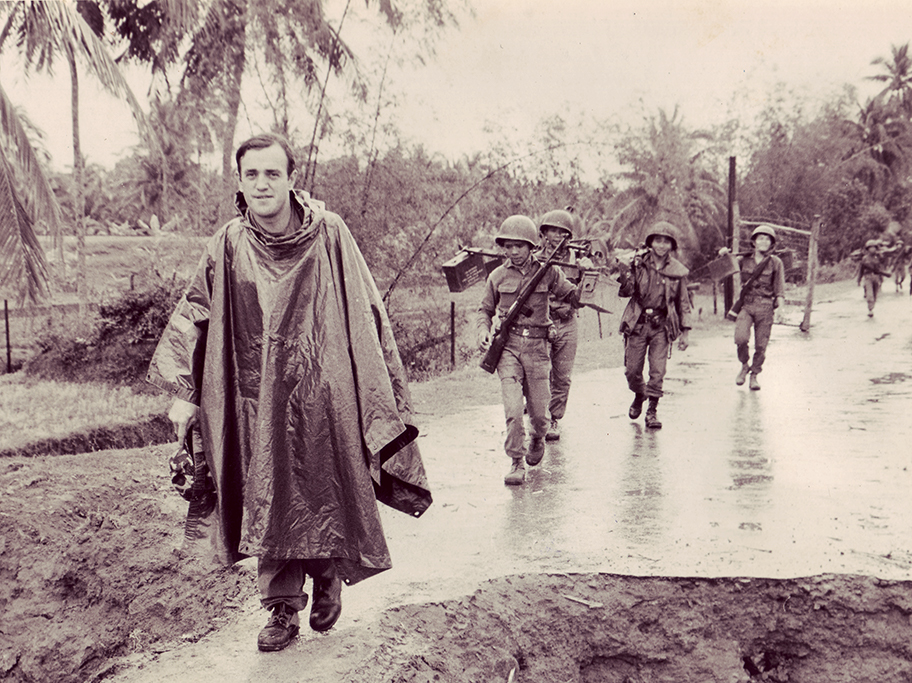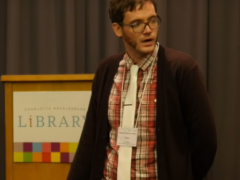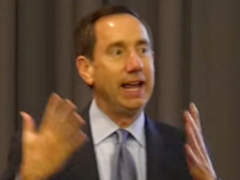
JDNA stories

Have you heard about the 34-part Pulitzer Prize nominee that just disappeared off the Internet? How can this be prevented from happening again? Our stories highlight the importance of preserving born-digital news — sharing some victories and some tragic failures — and what we’re doing about it.
JDNA stories
-
Kate Zwaard: Technology and community: Why we need partners, collaborators, and friends
Scroll to view transcript KATE ZWAARD: [00:07, Slide 1]: I just want to start with a quick caveat that I’m not here talking on behalf of the Library of Congress when I’m expressing my personal opinions. I’m using experience that I learned there. I’ll be talking about a few things that I think, and it’s…
-
Peter Arnett: Saving the AP Saigon bureau archives
Read War stories: How Peter Arnett’s efforts to save Saigon articles inspire today’s preservation efforts PETER ARNETT: [00:04] When, a few months ago, Ed invited me to join this conference, I immediately accepted because information gathering in the field and access to research materials, particularly historical data, had been an integral part of my 50-year…
-
War stories: How Arnett’s efforts to save Saigon articles inspire today’s preservation efforts
I’m no hero-worshiper, far from it. Yet there are people who I admire, people who have certain principles along with the courage of their convictions. A number of such commendable individuals joined us at the Dodging the Memory Hole: Saving Online News forum last month at UCLA. Among them was journalist Peter Arnett, who won…
-
Digital preservation: How much is it going to cost, and who can I work with?
The expense of digital preservation for the news producer will vary depending on how much of the effort is managed in-house. By collaborating with those who already have the infrastructure, the cost to news agencies could be very little indeed. For example, news publishers in Kentucky were already regularly submitting their PDFs to a vendor…
-
Saving born-digital news: Clifford Lynch, Coalition for Networked Information
CLIFFORD LYNCH: [00:01] Journalism shapes events as well as documenting them, and for that reason it’s also important to keep a good record of it. If you look at the role of journalism in everything from decisions to go to war to political campaigns — that’s something we really need a record of so…
-
Learning to JAM in 5 steps: New initiative reminds journalism students to archive their digital work
In the early days of computing, we used a phrase, “save early, save often.” Today’s digital content creators have more opportunities and more ways to save, but often forget this critical step. To keep content from being lost forever, our students and faculty need to learn best practices. I’m proud that our librarians, Ed McCain…
-
Digital preservation: Why is this important to me?
Journalists are dependent upon access to back files for research and context, but those back files may no longer be there. Almost all news content created in the U.S. today is digital, but digital content is even more fragile than print and might be scattered over a variety of media and storage systems. How long…
-
Take Action! Public-Private Partnerships: Importance/Difficulty Matrix
EDWARD MCCAIN: [00:10] We’re going to break up into groups here in a little bit. At the first Dodging the Memory Hole we broke into groups, and we were looking at partnerships. I’ve ranked them here; and I also have some hard copies that I’m going to share with you as groups, but I wanted you to…
-
Take Action! Public-Private Partnerships: Brian Hocker and Edward McCain
EDWARD MCCAIN: [00:08] We have a fairly large group, and we're going to break up the group and continue some of the work that was done on partnerships in the first Dodging the Memory Hole last November. But since we had Brian here today I thought we'd explore a little bit more about his…






